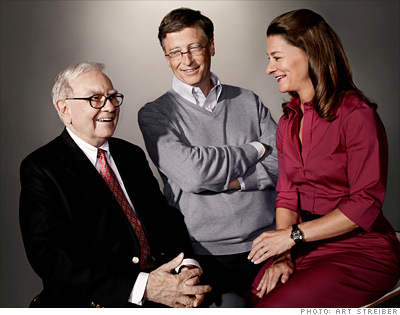CEO as Statesman: Parag Khanna’s New Plan for “How to Run the World”
Yahoo Finance Tech Ticker |
From authoritarian regimes that violate human rights to deadly diseases that wipe out entire populations, it is safe to say the world’s got its fair share of problems.
But fear not, says Parag Khanna, author How to Run the World: There’s a new statesman in town.
The CEO statesman.
“These are people who have taken it upon themselves to play a public role,” says Khanna, referring to the likes of Bill Gates, George Soros and Warren Buffett, who in the twilight of their careers have dedicated billions of dollars to various causes around the world. The Bill and Melinda Foundation alone has granted nearly $25 billion to charity since 1994.
Khanna, a senior research fellow at the New America Foundation, believes the world needs a a new, hybrid-like, type of governance where the private and public sectors must play equal parts. (See:Is the Prius the New Model for Global Good Governance?)
Whether you like what these “philanthropreneur’s” promote or not -- and Soros is clearly a controversial figure -- “they create enormous tangible benefits on the ground,” says Khanna, who considers these charitable actions a positive for the future of globalization.
"CEOs should get used to being statesmen," he says. "These CEOs are making a name for themselves by doing things potentially in their business interest but certainly in their personal interest. Look at how we have a very hard time distinguishing between the two; how they're blurring together."
Billionaire Peer Pressure
To spur other incredibly wealthy individuals to give back to the world community, Gates and Buffet have been promoting The Giving Pledge. The pledge persuades every millionaire and billionaire to commit the majority of their wealth to philanthropy.
The pledge seems to be taking hold as intended due to the “shame effect,” or peer pressure, says Khanna. More than 40 people have signed the pledge, including billionaire Mark Zuckerberg, founder and CEO of Facebook.
Just like Zuckerberg, more and more CEOs who still have “day jobs” so to speak are contributing to the well-being of the world as well. There’s Virgin’s Richard Branson who Khanna says is tirelessly looking to create incentives for a revolution in clean energy. And, along those same lines is Wal-Mart’s Michael Duke, who has partnered with the Environmental Defense Fund to “green” the company’s supply chain by cutting 20 metric tons of greenhouse gas pollution by 2015.
